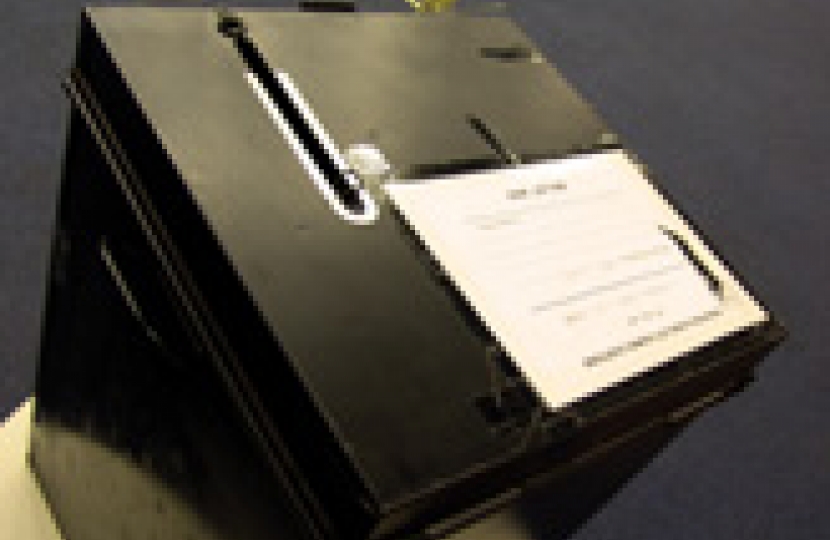
A new 'local tax lock' that allows people a vote to stop council tax going up if their local authority refuses to freeze bills and hike the tax by more than 3.5 per cent was hailed by Local Government Secretary Eric Pickles today as a radical extension of direct democracy.
Council tax has more than doubled since 1997 and despite the huge public finance pressures the Government has taken unprecedented steps to fund £675m for a second year bill freeze.
If councils agree to the freeze local taxpayers living in an average Band D home in England could once again save up to £72 in council tax.
Councils that do not take up the freeze and instead seek to increase council tax above the 3.5 per cent level, proposed by Government today, will trigger a referendum. If the local electorate vote against that increase the local authority will have to revert to a council tax level that is compliant.
The Localism Act abolishes Whitehall capping in England and puts local referendums in its place. Parliament will be asked to endorse the final vote threshold before councils set their annual budgets in the spring.
East Worthing and Shoreham Conservatives were told by Eirc Pickles;
"Since 1997 people have seen their council tax more than double, pushing typical bills to £120 a month. We are getting to grips with this with another council tax freeze deal and by radically extending direct democracy over big bill increases with a new local tax lock.
"Councils have a moral obligation to help hard-working families and pensioners with the cost of living. If they want to hike taxes on their local residents above 3.5 per cent they'll now need to get a direct democratic mandate to do it."
The Government also set out today its provisional second year funding settlement for English local authorities as announced a year ago. Councils will have an average spending power of £2,186 per household at their disposal.
£27.8 billion will be distributed in 2012-13 in a fair and sustainable way across all parts of the country - rural and urban, metropolitan and shire. It will give more weight to areas with the highest levels of assessed need. For example, the average spending power per household in Hackney will be £3,050 compared with £1,537 in Windsor and Maidenhead reflecting the fairness of the settlement.
Overall the average spending power reduction for councils in 2012-13 is expected to be limited to just 3.3 per cent or £75 per household, less than last year's comparable figure of 4.5 per cent.
The 2010 Spending Review set out the Government's plans to tackle the deficit and return the public finances, including local government, to a sustainable footing. Councils accounts for a quarter of all public expenditure.
Local Government Secretary Eric Pickles added:
"Every corner of the public sector has to help pay off the deficit including local government, which accounts for a quarter of all public spending.
"The second year of our fair and sustainable settlement will mean councils still have on average £2,186 for every household they serve, enough to safeguard the most vulnerable, protect taxpayers' interests and the front-line services they rely on.
"New financial incentives and powers for councils will mean they are well placed to find the necessary savings without salami slicing services - they have already started to show what can be done to increase efficiency, reduce overheads, shop smarter and fight fraud."
In the coming year councils will have access to new financial measures including over £430m of match funding under the New Homes Bonus, up to £1 billion in Community Infrastructure Levy, a General Power of Competence and in future years the potential to increase revenue from business rate retention.
Councils will also benefit from the £2.4 billion Regional Growth Fund, the £500m Growing Places Fund and the Housing Strategy investment in social housing.
